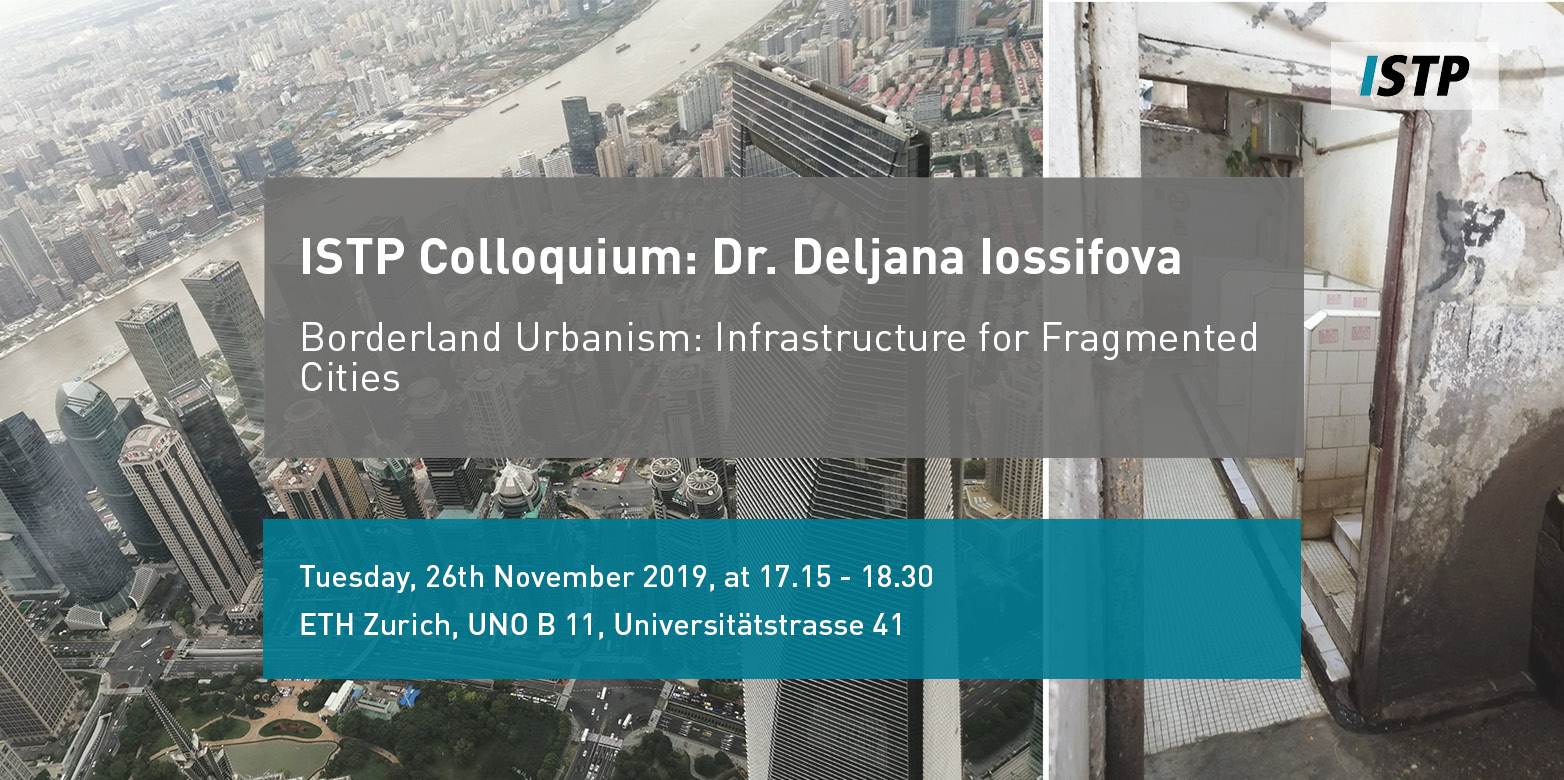Borderland Urbanism: Infrastructure for Fragmented Cities
ISTP Colloquium on Tuesday, 26th November 2019 on "Borderland Urbanism: Infrastructure for Fragmented Cities" by Dr. Deljana Iossifova, Senior Lecturer in Urban Studies at the School of Environment, Education and Development and Director of the Confucius Institute at the University of Manchester.
About the colloquium
Urban transformations in many countries of the Global South produce fragmented cities. These are characterised by the coexistence of fortified enclaves on the one hand, and informal settlements on the other. Everyday life is often radically different for residents in such areas. For example, the residents of fortified enclaves tend to benefit from formal infrastructure services provided by the state or private businesses. In urban slums, infrastructures, if present, are often off-grid, makeshift and reliant on the skills and resourcefulness of local communities.
The sustained functioning of infrastructural systems (infrasystems) under latent stress (e.g., resource scarcity; lack of maintenance) and acute shock (e.g., extreme weather events; blackouts) has multiple positive effects on human health and wellbeing. Infrastructure is therefore central to the UN Sustainable Development agenda, featuring in and contributing to multiple Sustainable Development Goals (SDGs; Goals 1, 3, 5-14 among others). The lack of access to sanitation, water, transport, energy or communication infrastructure can curtail sustainable development and entrench existing or create new social inequality dynamics, for instance in further stigmatising the urban poor.
This talk presents a new research programme on infrastructure for fragmented cities. The international and multidisciplinary research examines urban sanitation transitions in rapidly changing and fragmented/-ing cities in China, India and Brazil. The approach aims to develop a deeper understanding of infrasystems as complex and evolving socio-eco-technical entanglements and their potential sustainability outcomes in times of social and ecological crises.
About Dr. Deljana Iossifova
external page Deljana Iossifova is Senior Lecturer in Urban Studies at the School of Environment, Education and Development and Director of the Confucius Institute at the University of Manchester. She trained as an architect at the Swiss Federal Institute of Technology (ETH Zurich) and has a PhD in Public Policy Design from Tokyo Institute of Technology. She is the incoming Chair of the Urban Studies Foundation. She is International Lead and PI on two projects examining sustainability and urban infrastructure transitions in China, India and Brazil. Iossifova is lead editor of 'Defining the Urban: Interdisciplinary and professional perspectives' (Routledge, 2017).
Although her research is well aligned with postcolonial urban political ecology perspectives, she uses transition theories, systems theory and complexity theory in combination with practice theory to unravel complex socio-eco-technical entanglements. Her work is particularly concerned with the triggers and consequences of urban transformation in their context-specific expressions.
Iossifova has many years of experience as a practicing architect and led on a number of award-winning master planning and architectural projects, including ‘Beijing Daxing New Media City’ and ‘DressCode Flagship Store’ in Tokyo.
